The speed of technological development, especially in artificial intelligence (AI), has completely changed how large and small businesses are connecting with their customers.
Please see this article for more information on small business tips and strategies.
Today, businesses are using AI-driven solutions to improve and revolutionize the customer experience, increasing customer satisfaction, loyalty, and revenue.
Today, we will examine the many facets of AI's impact on changing the customer experience environment, highlighting its advantages, difficulties, and promise.
In this article:
- What is Artificial Intelligence?
- What is Customer Experience?
- What Impact Can AI Have on Customer Experience?
- Which AI Tools are Available for Improving Customer Experience?
- Benefits of Using AI in Customer Experience
- Challenges of Using AI in Customer Experience
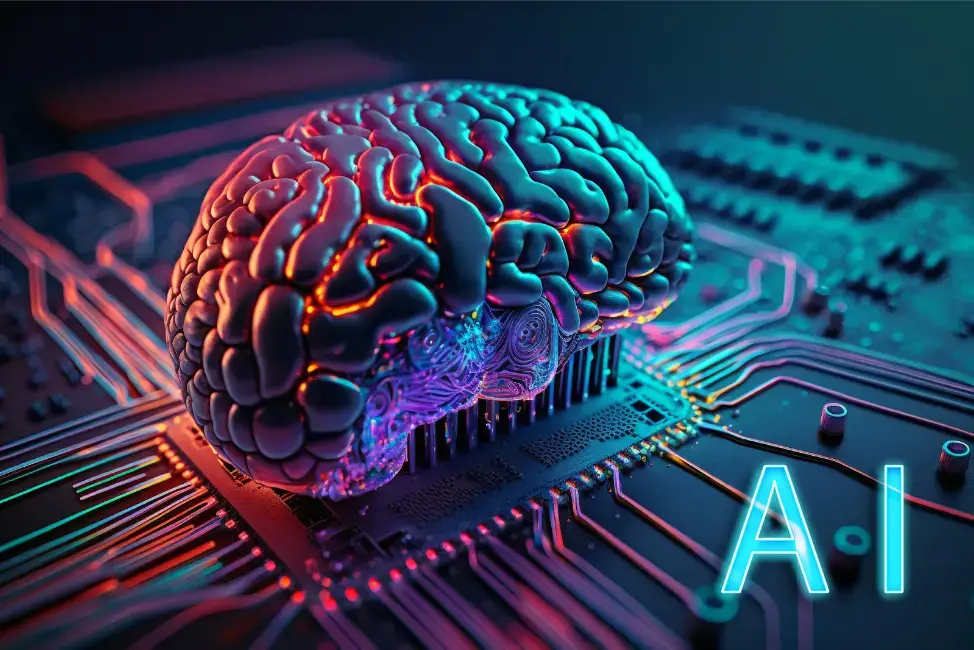
What is Artificial Intelligence?
A subfield of computer science called artificial intelligence (AI) seeks to develop hardware and software that can demonstrate intellect similar to a human being.
It entails creating algorithms and systems to observe their surroundings, analyze the data collected, draw conclusions based on experience, and take action to accomplish particular objectives.
AI technology enables machines to carry out problem-solving, speech recognition, natural language understanding, and visual perception that traditionally require human intelligence.
Artificial intelligence (AI) includes many subfields, such as machine learning, natural language processing, computer vision, and robotics. It is advancing quickly and has applications in many different fields and businesses.
As AI evolves, it presents both exciting possibilities for automation and optimization, while also considering ethical considerations concerning privacy, bias, and the societal impact of AI-driven automation.
What is Customer Experience?
Customer Experience (CX) refers to the overall perception and interaction that customers have with a brand or business throughout their entire journey, from the initial contact to post-purchase support.
It encompasses every touchpoint and interaction a customer has with a company, including website navigation, product or service selection, customer service interactions, and after-sales support.
A positive customer experience focuses on meeting and exceeding customer expectations, delivering seamless and personalized interactions, and providing value that fosters customer satisfaction and loyalty.
On the other hand, a negative customer experience can lead to dissatisfaction, customer churn, and damage to a company's reputation.
Some customers visiting your website expect speed and easy navigation, so you should invest in a good web provider, like Windows VPS hosting.
Companies prioritizing customer experience understand that it is critical in building long-term relationships, fostering customer loyalty, and taking the business through the five stages of small business growth.
As such, they continuously strive to optimize and improve every aspect of the customer journey to ensure a positive, consistent, and memorable experience.
What Impact Can AI Have on the Customer Experience?
Artificial Intelligence (AI) profoundly impacts the customer experience, revolutionizing how businesses interact with their customers and enhancing various aspects of their journey.
Leading companies are leveraging generative AI services to create customized content and deliver more personalized customer experiences at scale.
Here are some of the key ways AI can influence and improve the customer experience:
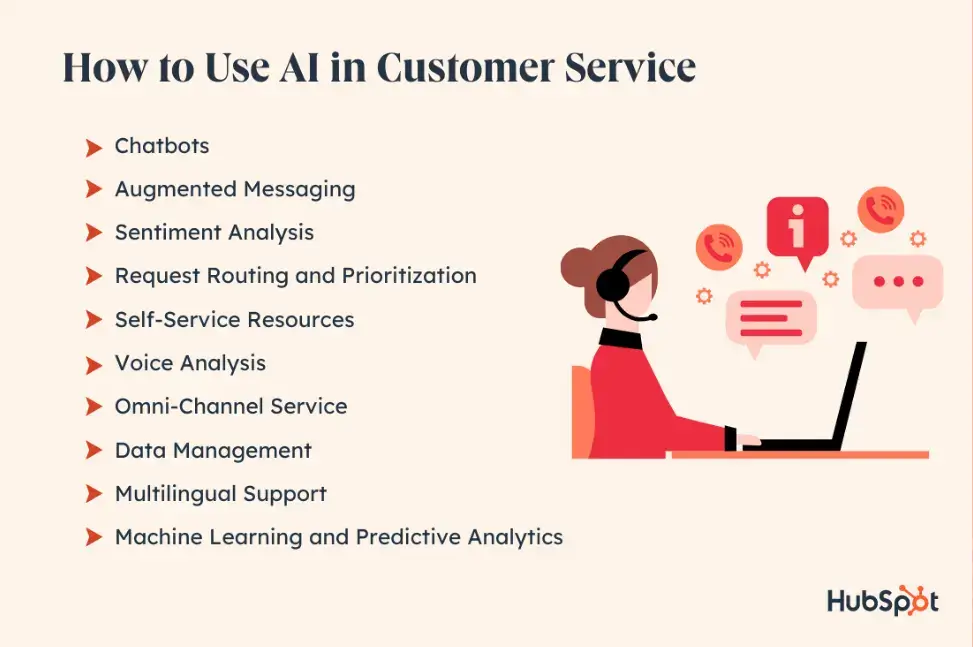
- Personalization
AI enables businesses to offer highly personalized experiences to their customers. By analyzing vast amounts of data, AI algorithms can understand individual preferences, purchase history, and behavior.
It will also allow companies to tailor product recommendations, marketing messages, and offers to each customer's needs and interests.
- Customer support
AI chatbots and virtual assistants provide real-time, 24/7 customer support. These intelligent systems can handle routine queries, offer instant solutions, and guide customers through buying.
Businesses can improve response times, increase efficiency, and enhance overall customer satisfaction by automating customer interactions.
- Predictive analytics
AI-driven predictive analytics reports can anticipate customer needs and preferences.
By analyzing historical data and patterns, AI algorithms can forecast customer behavior, helping businesses proactively offer relevant products or services and optimize inventory management.
- Sentiment analysis
AI can analyze customer feedback and social media mentions to gauge customer sentiment.
Businesses can use this information to understand customer perceptions, detect potential issues, and promptly address concerns, improving brand reputation and customer loyalty.
- Product recommendations
AI-powered recommendation engines can suggest products or services that align with individual customer preferences.
By providing accurate and relevant recommendations, businesses can increase cross-selling and upselling opportunities, leading to higher revenue.
For example, if a user has previously looked at or purchased t-shirts, AI-powered recommendations suggest similar t-shirts or matching accessories that interest the user.
- Voice assistants
AI-driven voice assistants, like Siri and Alexa, offer seamless and natural interactions with technology.
Customers can use voice commands to access information, control smart devices, and perform tasks, providing a more convenient and enjoyable customer experience.
- Fraud detection and security
AI is instrumental in identifying fraudulent activities and protecting against identity theft.
By analyzing transaction data and detecting unusual patterns, AI algorithms can protect customers and businesses from financial losses and enhance overall trust in the brand.
- Customer journey optimization
AI can analyze and optimize the entire customer journey, identifying pain points and areas for improvement.
By streamlining the customer experience, businesses can increase customer satisfaction and loyalty, leading to higher retention rates.
Which AI Tools Are Available For Improving Customer Experience?
Numerous AI tools and technologies are available for businesses to improve the customer experience across various touchpoints. Here are some of the popular AI tools commonly used for enhancing customer experience:
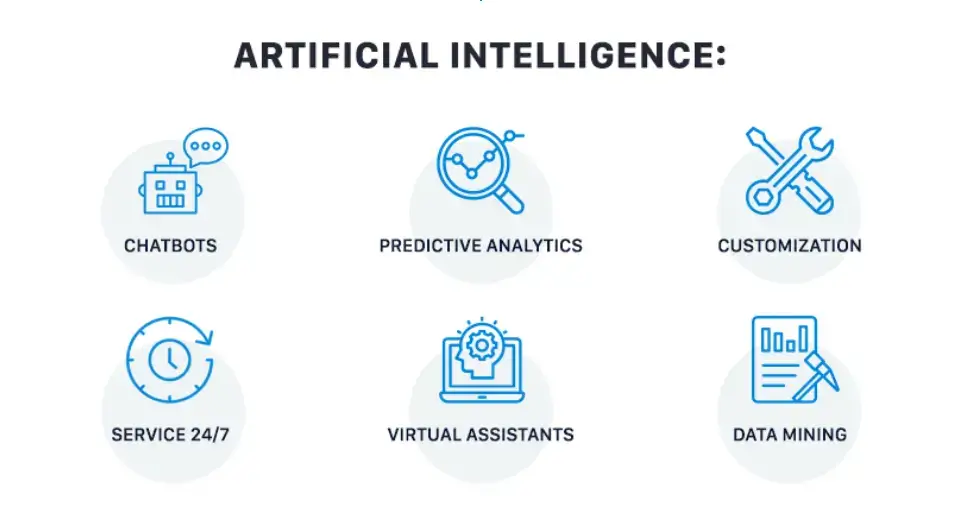
- Chatbots and virtual assistants
AI-powered chatbots and virtual assistants provide instant customer support and personalized interactions.
Tools like Dialogflow, IBM Watson Assistant, and Microsoft Azure Bot Service enable businesses to create and deploy intelligent chatbots that can answer customer queries.
They also offer product recommendations and guide users through purchasing.
- Natural Language Processing (NLP) platforms
NLP tools like OpenAI's GPT-3, Google's BERT, and spaCy enable businesses to process and understand natural language.
Use these platforms to develop sentiment analysis tools, language translation services like Weglot or similar, and personalized content generation, which contribute to an improved customer experience.
- Customer data analytics
AI-driven customer data analytics platforms like Salesforce Einstein Analytics and Adobe Analytics help businesses gain valuable insights into customer behavior, preferences, and pain points.
By analyzing this data, companies can make data-driven decisions to improve customer experience and tailor their offerings accordingly.
- Personalization engines
AI-powered personalization engines like Dynamic Yield and Evergage enable businesses to deliver personalized content and recommendations based on customer preferences and behavior.
These tools enhance engagement and increase customer satisfaction.
- Voice assistants
Voice assistants like Amazon Alexa and Google Assistant provide a hands-free and natural way for customers to interact with products and services.
Businesses can integrate with these platforms to offer voice-controlled experiences, enhancing accessibility and convenience for customers.
- AI-driven marketing automation
AI tools like HubSpot and Marketo use machine learning algorithms to automate marketing campaigns, segment audiences, and deliver personalized content.
These platforms optimize customer engagement, leading to more effective marketing efforts and improved customer experiences.
- Image and video recognition
AI-powered image and video recognition tools like Clarifai and Amazon Rekognition enable businesses to analyze visual content.
This technology enhances visual search, user-generated content moderation, and personalized product recommendations.
- Sentiment analysis tools
AI-driven sentiment analysis tools, like MonkeyLearn and Lexalytics, can assess customer feedback, reviews, and social media mentions to understand customer sentiment.
This information helps businesses identify areas for improvement and promptly address customer concerns.
- Customer journey optimization
AI platforms like Pointillist and Usermind enable businesses to map and optimize the customer journey across multiple channels.
These tools help identify pain points and opportunities for improvement, leading to a more seamless and satisfying customer experience.
- Customer feedback analysis
AI tools like Thematic, Speak, and Zappi help businesses analyze customer feedback at scale.
These platforms can categorize and interpret customer feedback, allowing companies to make data-driven decisions and address customer needs effectively.
Benefits Of Using AI In Customer Experience
Integrating AI into the customer experience offers numerous benefits for businesses, enabling them to deliver more personalized, efficient, and satisfying customer interactions. Here are some key advantages of using AI in customer experience:
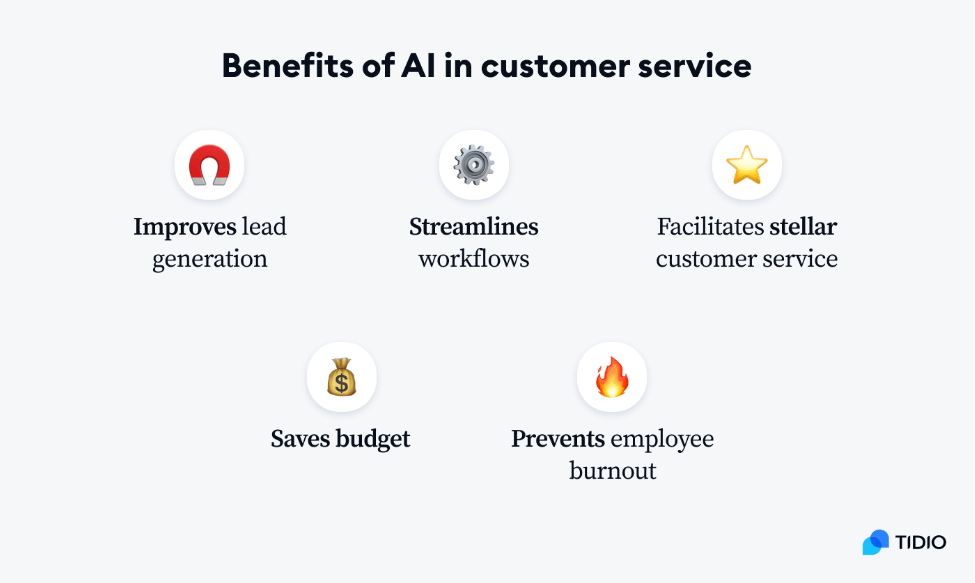
- Personalization
AI-driven tools analyze vast amounts of customer data to create detailed customer profiles, allowing businesses to deliver highly personalized experiences.
Businesses can significantly enhance customer satisfaction and loyalty by tailoring product recommendations, marketing messages, and support interactions to individual preferences.
- 24/7 customer support
AI-powered chatbots and virtual assistants provide round-the-clock customer support, ensuring customers can receive assistance and answers to their queries anytime.
This 24/7 availability improves customer service and reduces response times, leading to a more positive customer experience.
- Improved customer engagement
AI-powered tools like sentiment analysis and natural language processing enable businesses to understand customer emotions and preferences better.
Companies can build stronger relationships and foster brand loyalty by engaging customers more empathetically and meaningfully.
- Enhanced customer journey
AI can analyze and optimize the entire customer journey, identifying pain points and areas for improvement.
By streamlining the customer experience, businesses can increase customer satisfaction and retention, ultimately driving business growth.
- Data-driven decision making
AI-driven analytics provide valuable insights into customer behavior and preferences, enabling businesses to make data-driven decisions.
It allows targeted marketing efforts, optimized product offerings, and personalized customer interactions.
- Efficient customer service
AI-powered chatbots and virtual assistants can handle routine customer queries, freeing up human agents to focus on more complex issues.
This efficiency reduces wait times and faster resolutions, increasing customer satisfaction.
- Proactive support
AI predictive analytics can anticipate customer needs and identify potential issues before they arise.
By addressing concerns proactively, businesses can prevent customer dissatisfaction and enhance the overall customer experience.
- Optimized product recommendations
AI recommendation engines analyze customer behavior to provide accurate and relevant product suggestions.
It enhances cross-selling and upselling opportunities, driving increased revenue for the business.
- Cost savings
By automating routine tasks and optimizing processes, AI can save businesses cost.
With AI handling repetitive tasks, human resources can be redirected to more strategic roles, improving efficiency and resource utilization.
- Competitive advantage
Businesses that adopt AI in their customer experience strategies gain a competitive edge in the market.
A superior customer experience sets them apart from competitors and positions them as customer-centric, leading to increased brand loyalty and customer advocacy.
Challenges Of Using AI In Changing Customer Experience?
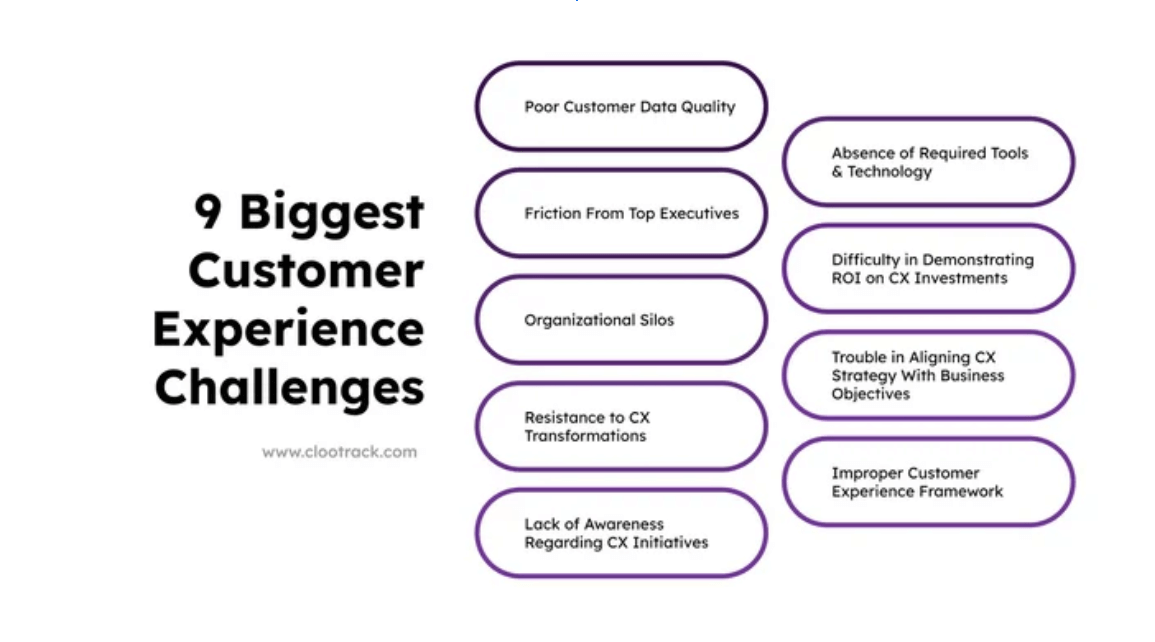
Integrating AI into transforming customer experiences undoubtedly presents a myriad of benefits, and one area where it can play a crucial role is in AI lead generation.
However, along with its potential advantages, AI also brings challenges. To fully leverage AI's capabilities in enhancing customer experience and lead generation, businesses must proactively address these obstacles.
One critical challenge of utilizing AI in changing customer experience is optimizing its application for lead generation purposes.
- Data privacy and security
AI relies heavily on data, including customer information, preferences, and behavior.
Ensuring the privacy and security of this data is paramount, as any data breaches or misuse can severely damage customer trust and lead to legal consequences.
Businesses must implement robust data protection measures and adhere to data privacy regulations to safeguard customer information.
Also, proper Android device management becomes crucial to maintain data security and privacy when dealing with AI in Android applications.
Properly managing Android devices ensure that you control data access and utilize encryption, and security patches are regularly applied to prevent vulnerabilities that could compromise user data.
- Bias and fairness
AI algorithms can inadvertently perpetuate biases present in the data used for training. It can lead to unfair treatment of specific customer segments, affecting their experience negatively.
Companies must actively address bias in their AI models and ensure fairness and transparency in their decision-making processes.
- Lack of transparency
AI algorithms can be highly complex and challenging to interpret, leading to a need for more transparency in certain decisions.
Customers may be wary of interacting with AI systems if they need help understanding the reasoning behind the responses they receive.
Businesses need to build trust with customers by providing clear explanations of how they are using AI and the benefits it brings.
- Integration challenges
Integrating AI systems into existing customer experience infrastructure can be challenging and time-consuming.
Businesses may face compatibility issues, require additional staff training, and need to ensure seamless coordination between AI-powered tools and human agents.
- Reliance on AI
While AI can enhance customer experience, striking a balance and only partially replacing human interaction is essential.
More reliance on AI may lead to impersonal customer experiences and a lack of empathy, which could deter customers from engaging with the brand.
- Cost and resources
Implementing AI solutions can be expensive, particularly for smaller businesses with limited resources.
Additionally, AI


